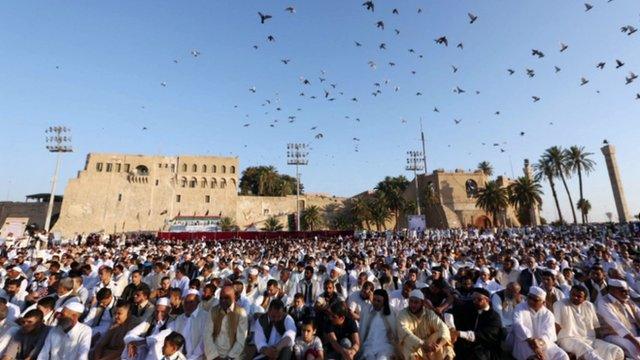Eid: How is the start of the Muslim festival determined?
- Published
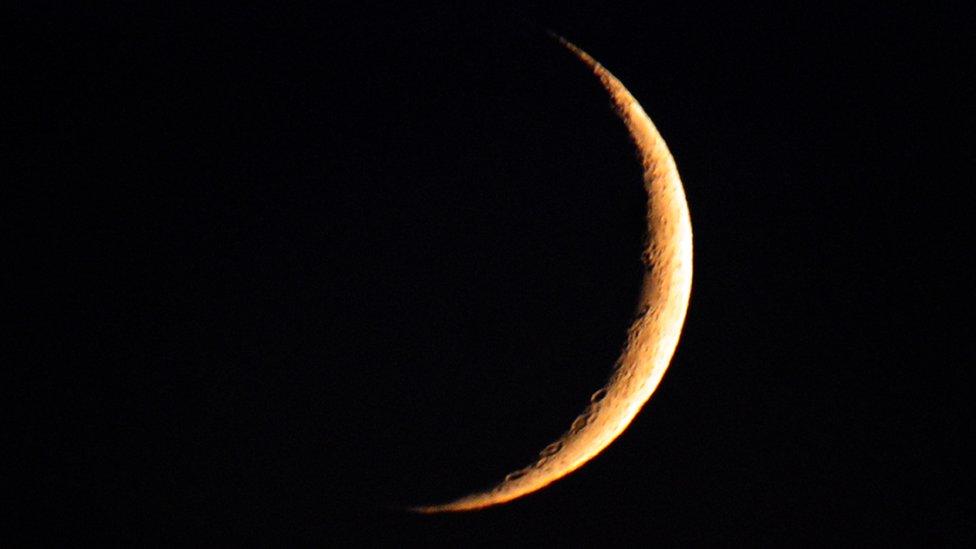
Islam follows the lunar calendar, based on phases of the Moon
The end of Ramadan is marked by the key religious holiday of Eid al-Fitr, in which Muslim families worldwide gather for the "feast of breaking the fast".
But for such a major global event, working out when it will happen is surprisingly complicated - as Ahmen Khawaja and Amir Rawash explain.
The power of the moon
As the end of the Islamic holy month of Ramadan approaches, many of the world's 1.8 billion Muslims hope for clear skies, to give them a sign that it is time to get out their best clothes and begin the feast.
Islam follows the lunar calendar, based on phases of the Moon. Ramadan starts in its ninth month.
Each year, the month begins around 11 days prior to when it started in the previous solar year.
This is significant, as it has a large impact on how people experience Ramadan from year to year.
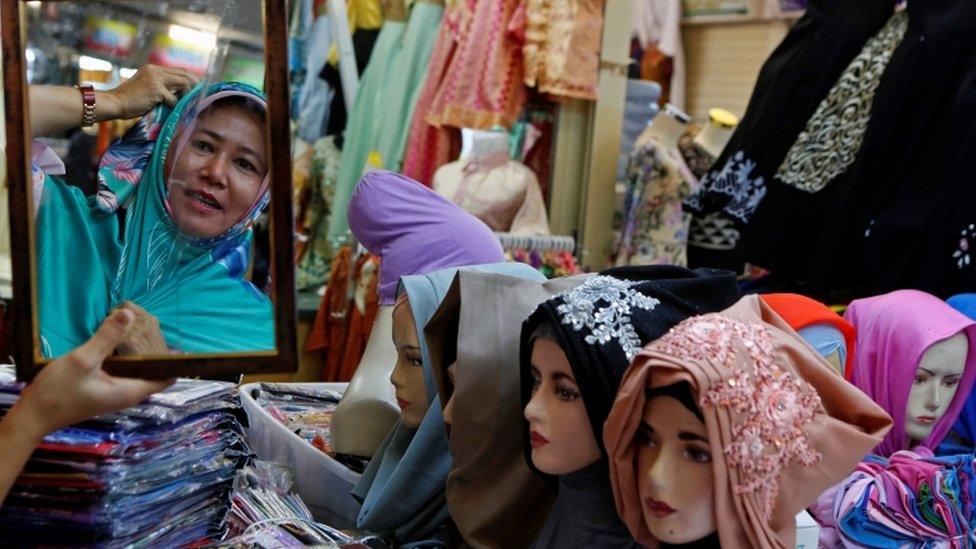
A woman shops for headscarves ahead of Eid al-Fitr in Jakarta, Indonesia
Muslims fast during Ramadan, abstaining from food and drink from dawn to sunset.
If the Islamic months were based on the solar calendar, with the seasons fixed, people living in certain parts of the world would always have Ramadan in summer, with long periods of daylight, while in other parts it would always have shorter winter days.
By following the lunar calendar, every Muslim is given a taste of fasting in different seasons.
The sightings debate
The Eid festival falls on the first day of the 10th month of Shawwal.
But within Islam there is debate over when this begins. Muslims in most countries rely on news of an official sighting of the new Moon, rather than looking at the sky themselves.
Some follow a set lunar calendar, while others use astronomical observations to announce the arrival of the new Moon. There are also those who mark the new month only after personally seeing a crescent Moon in the sky.
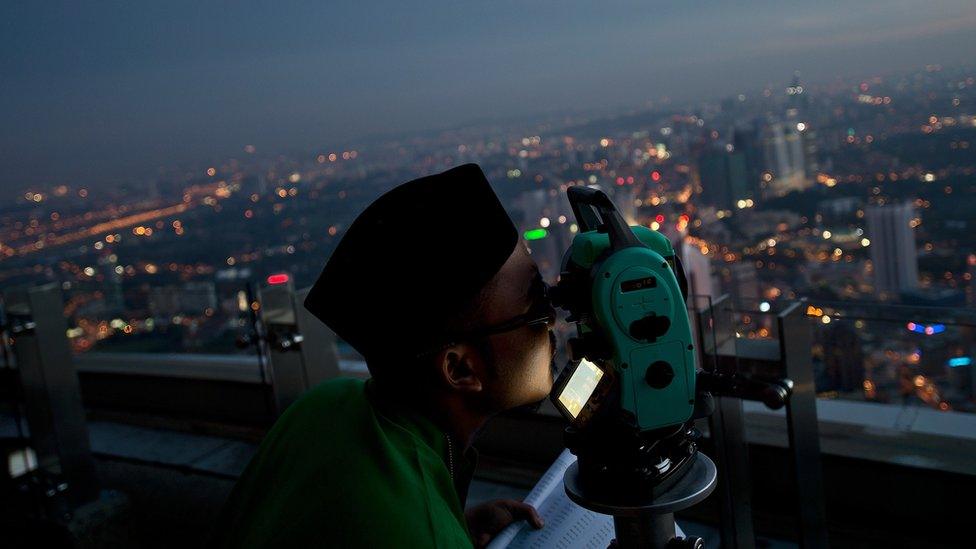
Some Muslims use telescopes to confirm the sighting of the new Moon to determine the Eid al-Fitr
So Eid dates differ around the world, though they are usually within one or two days of each other.
For example, authorities in Saudi Arabia - the birthplace of Islam, and dominated by Sunni Muslims - announce the start and end of Ramadan depending on testimonies of members of the public who observe the Moon by sight.
Muslims in many other countries then follow suit.
But Iran, which has a large majority of Shia Muslims, abides by a government announcement.
Iraq, which has a Shia majority and Sunni minority, uses a mix of the two - the Shia following the influential cleric Grand Ayatollah Ali al-Sistani's announcement, while the Sunni follow their own clerics.
Both Sunni and Shia Muslims in Iraq celebrated Eid al-Fitr on the same day in 2016 for the first time in several years.
Turkey, meanwhile, a country that is officially secular, uses astronomical calculations to decide the start and end of Ramadan.
And in the rest of Europe, most Muslims wait for announcements by leaders of their own communities - though this may depend on observing the Moon in other Islamic countries.
- Published23 June 2017
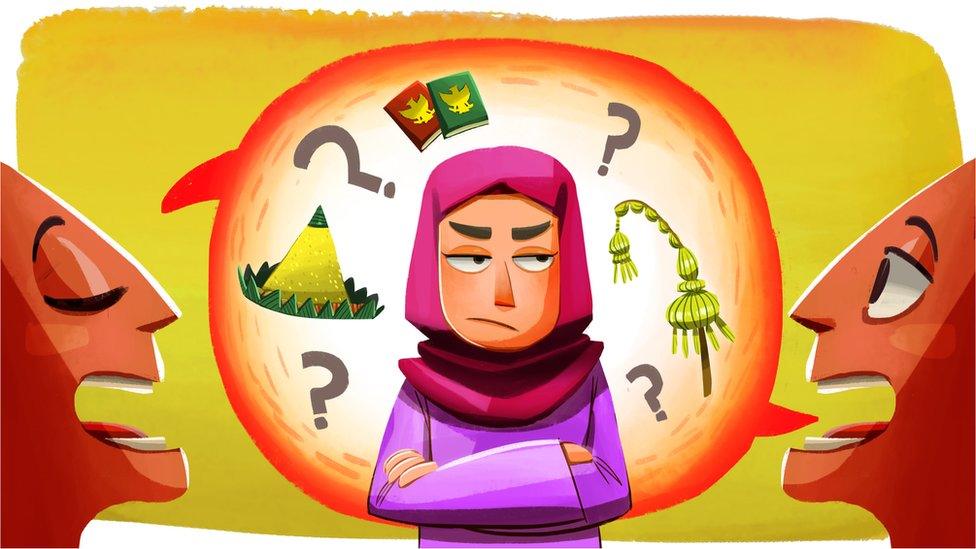
- Published17 July 2015
